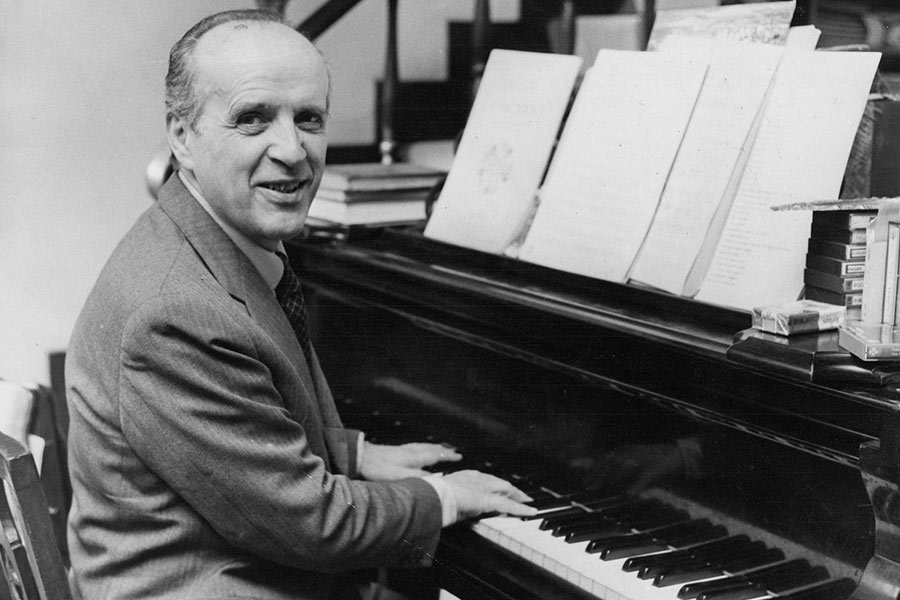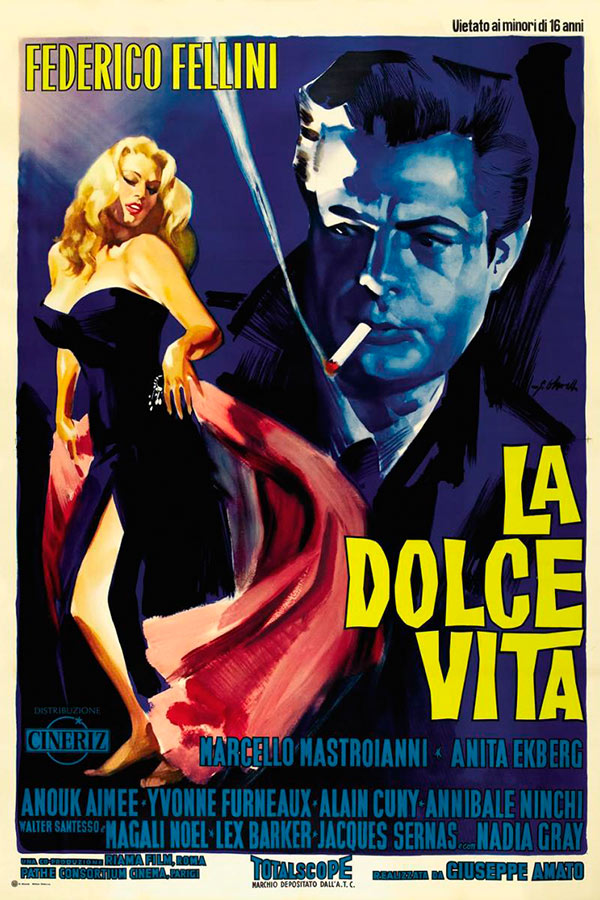Nino Rota: who he was, his soundtracks and where to enjoy his great classic “The Godfather”
There are some songs that, just by listening to the first notes, transport us to the movies they accompany. It happens with the tension transmitted by the main theme of Shark, by composer John Williams, which caused an entire generation to not see bathing in the sea in the same way. Or with that of The Good, the Bad and the Ugly, music written by the famous Ennio Morricone and that takes us by the hand to the dusty West. The Godfather For its part, it is one of those soundtracks that are among the pages of cinema history and that, furthermore, is part of popular culture. Who is behind it is none other than Nino Rota, a prolific Italian composer who produced melodies for more than 150 films. It is one of the most recognized authors in the film industry and whose trajectory we are going to immerse ourselves on this occasion.

Who was Nino Rota?
Rota (Milan, 1911- Rome, 1979) was born into a family with a great musical tradition. His grandfather, Giovanni Rinaldi, a well-known pianist and composer, author of multiple piano solos, and his mother, Ernesta Rinaldi, a talented pianist, influenced the composer's education from an early age. That is why Rota's precocity in the world of composition is not surprising; At the age of 8 he created a four-hand prelude and a piano fugue written to accompany a fable written by himself.
The pieces produced throughout his career are multiple: operas, chamber music, works for orchestra, oratorios, several concertos for various instruments and music for piano. However, what made him a composer recognized internationally were his works for the world of cinema.
Musical style of composer Nino Rota
One of the main characteristics of his compositions was simplicity and its roots in traditional tonality. Although he was criticized for not incorporating the musical trends and styles of his time, he remained true to his personal style. Among the principles that guided his work was the desire for music to be accessible to a wide public, allowing the audience to connect with the melody and its implicit message immediately. Many of his compositions have become very recognizable icons in popular culture precisely because of the ability they have to create a link between the viewers, the plot and the characters of the films.
Another key to Nino Rota's music is his lack of restriction towards a specific gender; in fact, he did not believe that music should conform to a specific aesthetic. Otherwise it would mean a barrier to artistic freedom that had to take precedence in the creation of a soundtrack, a piece that must integrate, complement and live with the cinematographic text. As a result, his large repertoire demonstrates a great sensitivity to capture the essence of films that accompanied and a great ability to create music that synchronized with the images on screen, enhancing the narrative and emotions of each scene.

Films with soundtracks by Nino Rota
Rota's productive career in the film industry reached its peak in the 1940s. Many things can be highlighted about his career, but one of the most significant was his long association with the Italian director and screenwriter Federico Fellini, with whom he worked 30 years of his life. His “magical friend,” as the filmmaker called him, was responsible for setting music to 16 of his films, including the masterpieces The sweet life (1960), 8 ½ (1963) and Amcord (1973).
This relationship, and Fellini's way of working, is said to have influenced Rota and his later compositions. Music was a fundamental part of the director's films, where it had to fulfill a narrative and psychological role. The author's talent led him to create melodies with great emotional power, something that later became one of the distinctive features in all his scores for the big screen.
During his life, Nino Rota also collaborated with other great filmmakers such as Rene Clement (Full sun, 1959), Luchino Visconti (The Leopard, 1963) or Francis Ford CoppolaThe Godfather).

The Godfather and its soundtrack: an icon of film music
Rota was in charge of writing the original scores for parts I (1972) and II (1974) of The Godfather, while Carmine Coppola, father of the director of the trilogy, he arranged the scene music and created the soundtrack for Part III from those of the other two films, due to the composer's death in 1979.
The iconicity of the songs that accompany these tapes has been internationally recognized and their work to The Godfather II was awarded the Oscar for best original score in 1974, a prize he shared with Carmine Coppola.
What is the name of the soundtrack of the movie The Godfather?
The melody of The Godfather is encapsulated in the first 12 notes of the song “Love Theme” by The Godfather I. Nothing else is necessary to identify it. And you may have caught yourself singing it at some point. Its commercial success was undeniable, in addition to its role in creating the atmosphere of the film. Rota's score is a masterful mix of classic and popular elements that reflect the duality of the film's story and characters.
The truth is that this track It initially received an Oscar nomination, but was marred by accusations of plagiarism. The complaints came mainly from the producer of Fortunella, a film on which he had previously worked and for which he had written the original scores. Although the case was closed, it caused Rota to have to wait until the second part of The Godfather to receive the well-deserved award.

Where to enjoy the music from the film The Godfather live
The mark of Nino Rota's talent in the history of cinema is undeniable, as he has produced some of the most beloved and recognizable soundtracks of all times. And his legacy can still be enjoyed not only in the films he collaborated on, but also thanks to live music. You can experience music differently The Godfather and of others iconic soundtracks from film history with the Film Symphony Orchestra's Henko tour. Take a look at the dates and don't miss it!



